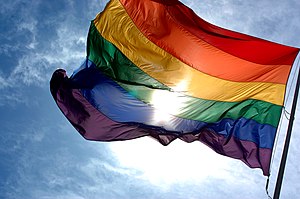Quite a few days ago, I got into a discussion about sexual ethics and how people respond to others who have a different (mostly more permissive) sexual ethic than their own. As the conversation continued, I’ve considered how my personal sexual ethic has changed over the past year.
Prior to March 2010, my personal sexual ethic was still more or less what it was like when I was a Christian. While I felt other people should be free to come to their own conclusions about what was appropriate for their own lives – provided their choices treated others with the dignity and respect that they deserve – the best course for me was to continue to seek a life-long partner and enter into a monogamous relationship with him.
In retrospect, this did cause me to act rashly and rush taking a few of my romantic relationships to a more sexually intimate level more than may have been prudent. I quickly convinced myself that I was experiencing “true love” so that I could acknowledge and consummate that bond through sex. And then everything would crash and burn, and I would feel miserable, get depressed, and kick myself for being such a fool.
After a particularly abysmal failure at love and a relationship in early 2010, I decided that I was tired of that pattern. I decided that I was even tired of looking for “true love” and a life-long partner. I decided that I wanted to have short-term fun. In short, I wanted to have sex for the sake of having sex. And I spent a few months doing exactly that. I looked for friends with benefits. I looked for fuck-buddies. I even looked for one-time hookups. I had sex and I enjoyed it. I found that I really could enjoy having sex with another man without first having some sort of emotional bond. And in many ways, it took a lot of pressure on me to find Mr. Right. I was able to relax rather than worrying about being single quite so much.
Of course, it wasn’t all roses either. More than once, I found that I eventually developed those emotional attachments anyway. I remember in one case, I was quite devastated when one of the guys I saw a few times suddenly quit showing any interest in me and even quit talking to me. I was terribly upset about this, despite the fact that our arrangement was supposed to be no strings attached.
And of course, there was the incident where I caught an STD, despite the fact that I was extremely careful. I was fortunate that it was treatable/curable. The experience was traumatic, but not the end of the world. And then there was the incident when, despite the fact that I was being careful about such things, one of my partners managed to steal from me. Being taken advantage of like that left me feeling quite betrayed, and I remember spending over an hour crying and blathering to a very dear friend.
I can honestly say that despite the bad experiences I had, I don’t regret anything that I did during that time. I learned a lot about myself in the process, I ended up making a couple good friends, and I had a lot of great times too, far more than the bad times in fact.
All that being said, though, I can honestly say that I’m happy to put those adventures behind me. While I feel like I needed to give myself that chance to explore and play and heal from my past experiences, I think I’m ready to think in terms of long-term relationships again. After all, in the end, I personally will be happiest when I’m with that special someone I can share every part of my life and body with.
That’s not to say I’ll never explore a more casual experience again, mind you. Truth be told, if I ever reach a point where I feel I absolutely need to have sex – after all, there are just some things about sex that cannot be reproduced or satisfied through manual or mechanical stimulation – I might give myself permission to do so. I think it’s far healthier than trying to rush around, find Mr. Right, and push myself prematurely into a relationship that’s not going to work out. (In some respects, I think it’s also more respectful towards the other person and more ethical.) And so long as I’m honest with the other guy and treat him respectfully, I see no problem with that.
That’s the thing I learned from the whole experience, I think: it’s all a question of what someone needs at the time. Different people have different needs. Sometimes, the same person has different needs at different points in their life. As long as the person is honest with themselves about what those needs really are, is honest with any partners and is clear about what they are willing to give in return for those needs, I think there is a lot of flexibility in what behavior is acceptable.











